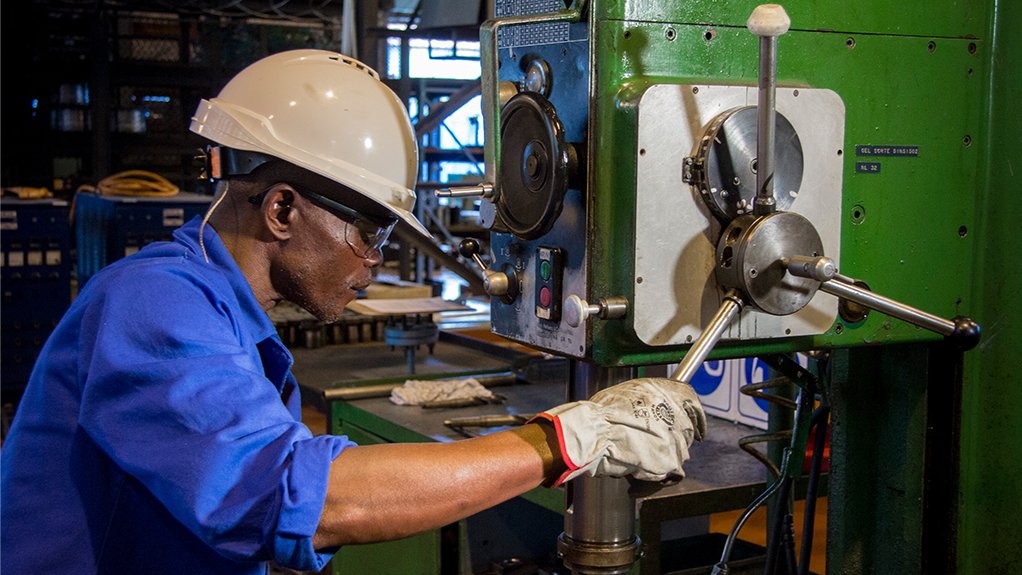Trade unions and industry associations expect negotiations at the Metal and Engineering Industries Bargaining Council (MEIBC), which are set to start on April 10, in Boksburg, to be tough.
Trade union Solidarity says the negotiations will be challenging because of an agreement that was reached during the Covid-19 pandemic period. In terms of that agreement, salary increases were only calculated on the minimum salary scales per job grade, which disadvantages skilled employees on the higher scales the most.
“Employers now want to continue this practice and, while trade unions are aware that the sector is under pressure, this will be opposed. This is because skilled employees are disadvantaged in particular by this practice and skilled employees’ disposable income continues to shrink, leaving them no choice but to leave the country, taking their skills abroad,” Solidarity general secretary Gideon du Plessis says.
Solidarity notes that, in response to these circumstances, the six trade unions involved in the negotiations, agreed not to come to the table with a long list of salary demands, but rather to make every effort for employees to receive increases on their actual salaries again.
“Amid all the challenges and differences, a settlement can be reached quickly if the employers and trade unions can strike a balance between employer sustainability, which means job retention and an increase that will enable employees to keep up with inflation,” Du Plessis says.
Meanwhile, in an open letter to MEIBC general secretary Sicelo Nduna on March 25, the Steel and Engineering Industries Federation of Southern Africa (Seifsa) said this year’s negotiations would not be easy as the challenges facing the industry were many.
“South Africa’s economic outlook doesn’t look good and there is little business confidence. The notion of job retention and/or job creation on the back of an alarming[ly] high unemployment rate, fuelled by ongoing retrenchments and business closures, has become elusive,” the association said.
It added that persistent loadshedding, the worst in more than a decade and showing no signs of ending, along with spiking unemployment, widespread business failures and huge job losses, meant negotiations this year were taking place against a difficult economic landscape.
“It would be fair to say that only if labour and business across the board find a way of working together do we stand a chance of turning things around. It’s also fair to say that the relationship between supporters and detractors of gazetted collective agreements, like the main agreement, are strained. Litigation continuous and, in all likelihood, may well continue into the future,” Seifsa said.
The association pointed out that trust among all stakeholders needed to be rebuilt and that the national discourse needed to find a way of transcending beyond purely wages and terms and conditions of employment.
“Once negotiations over wages and conditions of employment have been settled, the focus must urgently shift to more important priority interventions, where labour and business collectively can play a part in tackling the deep underlying failures preventing meaningful growth in South Africa and our sector,” Seifsa said.
The association noted that, in the metals and engineering industries, the collective bargaining model had proven to be remarkably resilient, despite it having come under severe scrutiny and strain over the last few years.
“Resilience grows from taking constructive steps and building a common purpose. Without common purpose, crafting solutions to entrenched differences will remain elusive. It’s time for all role players to stand up and be counted.
“Notwithstanding our diverse ideologies as between business and labour and amongst business groupings, finding a way forward in tolerance and mutual respect is now, more than ever, desperately needed,” Seifsa said.
The organisation decried the continued perceived need for strikes and lockouts to reach agreements, stating that the time for such tactics should have long since passed.
“Who would have imagined almost three decades into our democracy we still need to resort to strikes and lockouts to resolve our differences? Collective bargaining in its crudest form is almost always about power and ideology and stubborn leaders convinced that they are right,” Seifsa said.
Industry body National Employers’ Association of South Africa (Neasa) last month also pointed out the “trying circumstances” being faced by the industry. It stated that employers in the sector were “at the end of their tether” and operating under conditions of employment that were already unaffordable for most of them.
EMAIL THIS ARTICLE SAVE THIS ARTICLE ARTICLE ENQUIRY
To subscribe email subscriptions@creamermedia.co.za or click here
To advertise email advertising@creamermedia.co.za or click here











